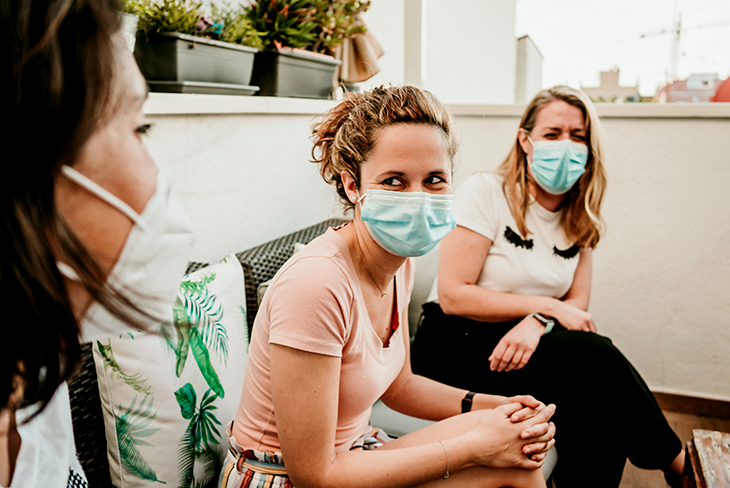How to adjust to life after lockdown

If you’ve been finding being back at the office, socialising with your loved ones and even trips to the mall daunting, you’re not alone. Read our advice on adjusting to the changes you’re dealing with.
We’ve spent the better part of the year adjusting to a new normal, but we are now faced with another challenge as lockdown restrictions have been eased: transitioning back to our old routines – during an ongoing pandemic. It’s important to prioritise your mental health in all spheres of your life during this process.
Navigating your job environment
Some of us are back at the office full time or on a rotational basis, while others are still working only remotely.
How to adjust
- If you have concerns about a safe working environment, chat with your manager.
- Set clear boundaries between work and home life, if you are still working remotely.
- Ask yourself how you are feeling throughout the day. Are you coping with your workload? Are your colleagues respecting your boundaries? What’s the state of your mental health?
Socialising with loved ones
During the hard lockdown, social interactions were limited to video and phone calls, texting and social media updates. As regulations have eased, socialising in small gatherings is allowed with certain regulations.
However, it’s normal to be apprehensive about socialising, particularly if you or anyone in your circle has comorbidities.
How to adjust:
- Socialise in ways that you find comfortable. You could start out with meeting a friend or loved one in the comfort of your home.
- Don’t completely isolate from others because socialising is important for your mental health and for maintaining healthy relationships.
- Check in with yourself during any activity to see how you are feeling.
Restructuring home life
Although being cooped up for months has been difficult for everyone, particularly those who live alone, most of us have learnt the joys of slowing down and embracing the simpler things in life. Without the demands of daily life, such as commuting to work, running errands and meetings, we started living more mindfully by trying new hobbies and spending quality time with loved ones.
How to adjust:
- Try to maintain some of the good habits you adopted, such as cooking healthy meals, exercising regularly and taking breaks from using your smartphone.
- Continue with self-care techniques such as meditation and journalling. If you didn’t do this during the lockdown, start prioritising time for self-care when possible.
Back to school
For students who attend schools with adequate resources, homeschooling became the norm. Lessons were, and are, being taught via video-conferencing tools, such as Zoom and Google Classroom.
But children who have fewer resources may have fallen behind and could be struggling to catch up. On a broader scale, some kids may be anxious about being around other children again and about ‘germs’.
How to adjust:
- If your child has fallen behind, reassure them that their teacher will help them to catch up and that you are also there to keep them safe.
- Remind them that there are things they can do to feel safe, such as wearing their facemask and keeping a bottle of sanitiser in their pocket.
- Do something to help them feel connected to you during the day. For example, leave an encouraging note in their lunchbox.
Take it one day at a time
While we again find ourselves in the midst of a transition, it’s important to remember how much you’ve overcome during a challenging time. Focus on trying your best and don’t be too hard on yourself when you aren’t coping.
It’s always best to seek professional help when you are feeling overwhelmed. You can find a psychologist near you and/or find out more information about Life Mental Health.
The content provided is not intended to be a substitute for professional medical advice, diagnosis or treatment and does not cover every aspect of mental health. Consult a doctor or your nearest emergency unit if you are concerned about your own or a loved one’s mental health. The information is shared on condition that readers will make their own determination, including seeking advice from a qualified healthcare professional. E&OE. Life Healthcare Group Ltd does not accept any responsibility for any loss or damage suffered by the reader as a result of the information provided.

